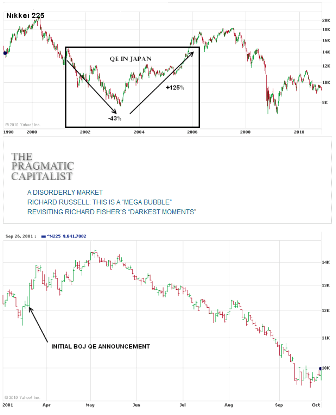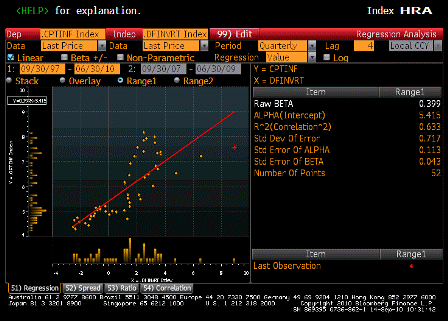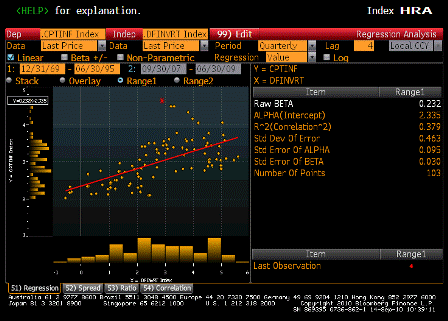I wasn’t sure whether to send this, as it reveals my lack of clarity on current events, but decided to send it to make the point.
Here’s what I see:
Markets are already discounting a large QE and are also discounting that QE actually makes a difference:
The dollar went down
Gold went up
Commodities went up
Interest rates fell
Stocks went up
So we have a big ‘buy the rumor sell the news’ leading up to the Fed meeting.
AND a potential ‘QE doesn’t work anyway’ let down.
I’ve never seen a more confused set of circumstances.
I recommend all traders stay out of this one.
Making money on this probably falls into the ‘better lucky than good’ category.
One of two things will happen- QE will or will not happen, data dependent
1. Good news for the economy means QE might not happen.
So the dollar reverses, and it went down for the wrong reason anyway, as QE fundamentally doesn’t alter the dollar, so it’s probably net short.
But how about the euro? It’s fundamentally strong with no end in sight, and good econ news helps them as much as anyone.
But an over sold dollar reversing can rally it against most everything while the unwinding goes on.
Stocks up, as that would be good news for stocks?
Or stocks down as rates go up and the dollar goes up, and the world goes to ‘risk off mode?’
(Stocks were helped by the weak dollar and lower rates.)
Is good econ news good or bad for gold? More demand in general is good, but less risk, less fear, and a strong dollar hurts. And it could be over bought in the QE craze as QE in fact has nothing to do with demand, currencies, or gold. It’s just a duration shift for net financial assets.
10 year notes? QE buying reverses and they go higher in yield.
But strong dollar and weak commodities and weak stocks and the Fed still failing on both mandates means low for long is still in place, even without QE.
It’s been strange enough that rates fell with a weak dollar (inflation) and rising commodities, so who knows what actually happens when whatever has been going on is faced with some combo of no QE and/or the realization that QE doesn’t do anything of consequence.
2. Bad news for the economy means QE happens.
Dollar keep falling? Or already discounted?
Gold and commodities keep rising? On bad econ news? And when already discounting QE working?
Stocks keep rising? On bad econ news? And already discounting QE working?
To a point, based on the presumption that QE actually works to add to domestic demand.
But has it already been discounted? And if markets believe QE works won’t they discount the Fed hiking after it works and the economy ‘takes off’???
The answer?
Don’t think of the medium term, just the short term.
Short term technicals will rule due to what’s been discounted.
The dollar is the pivot point, as it’s moved the most and for the wrong reason (except maybe vs the euro).
If nothing else, the dollar will appreciate if:
No QE due to good econ news
Buy the rumor sell the news/already been discounted forces
There is awareness that QE doesn’t do anything in any case
Foreign govt buying (currency war, etc.)
The dollar continues to fall if QE is larger than expected and the belief that it does something holds.
Recent economic news and Fed speak indicate that is not likely.
The other short term market moves will be reactions to the dollar move, and not so much reactions to what made the dollar move.
I do continue to like BMA forwards.
The one thing there is to be know is that high end marginal tax rates won’t go down, and that forward libor rates won’t fall below 50 bp.




